



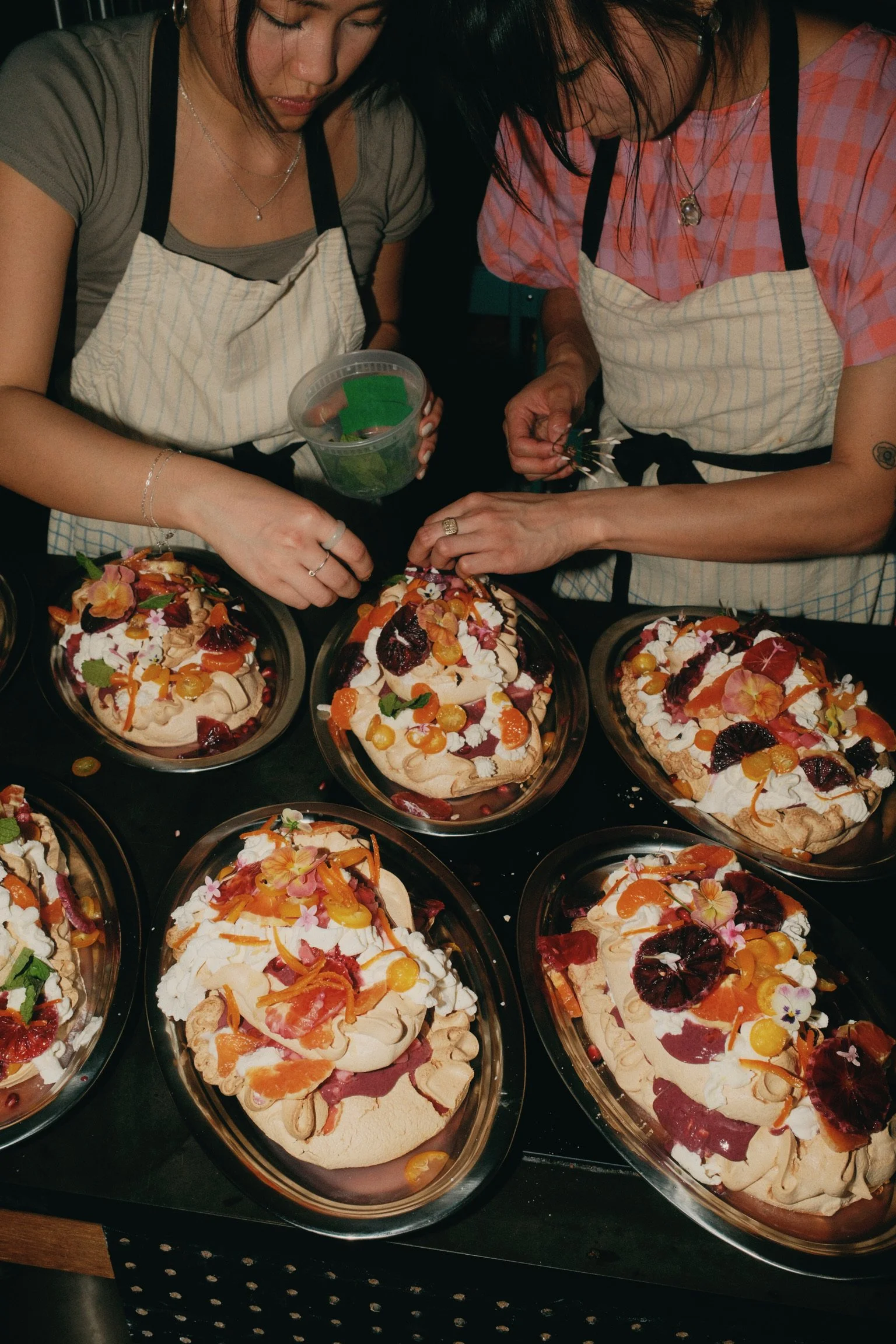


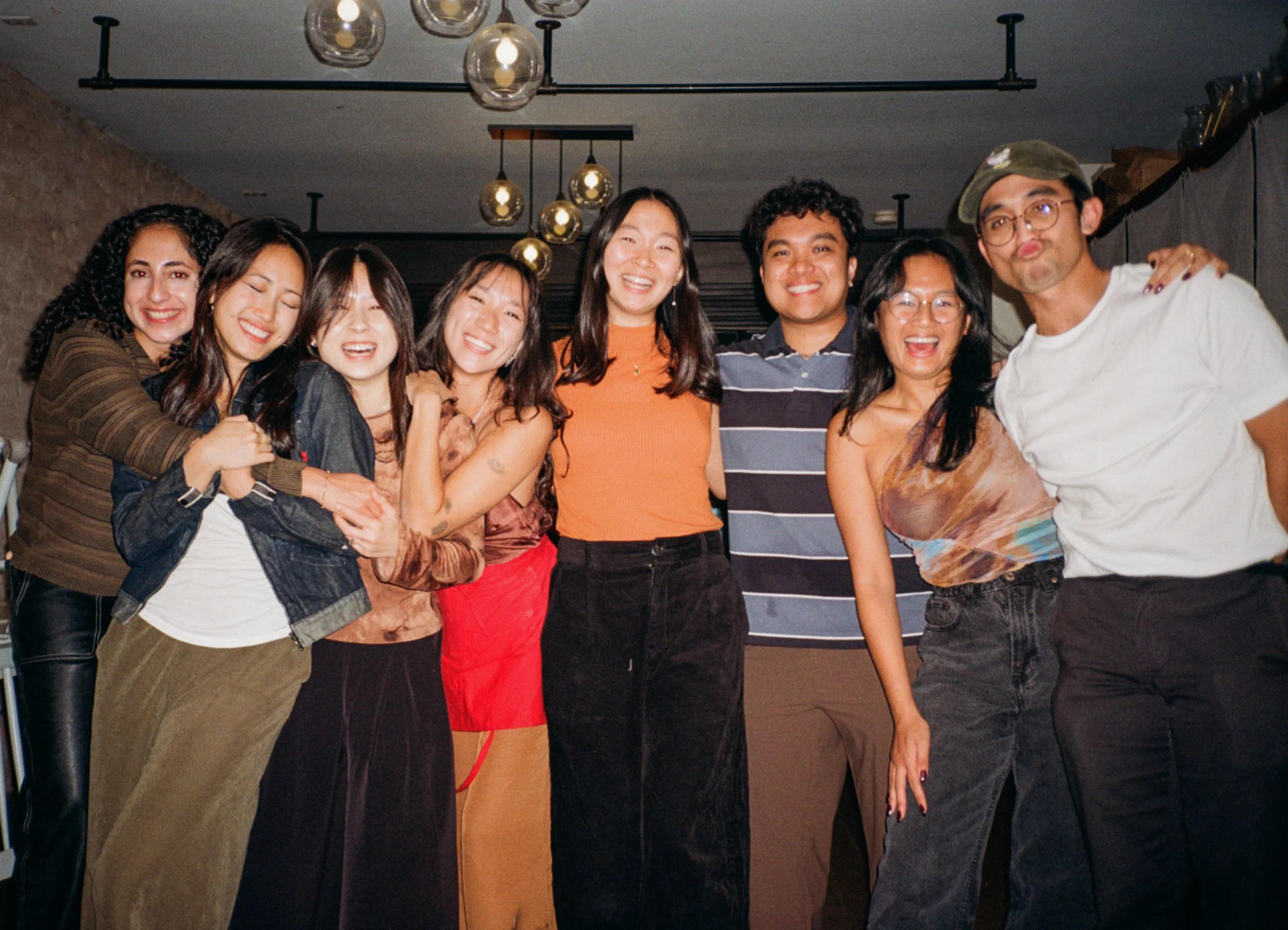


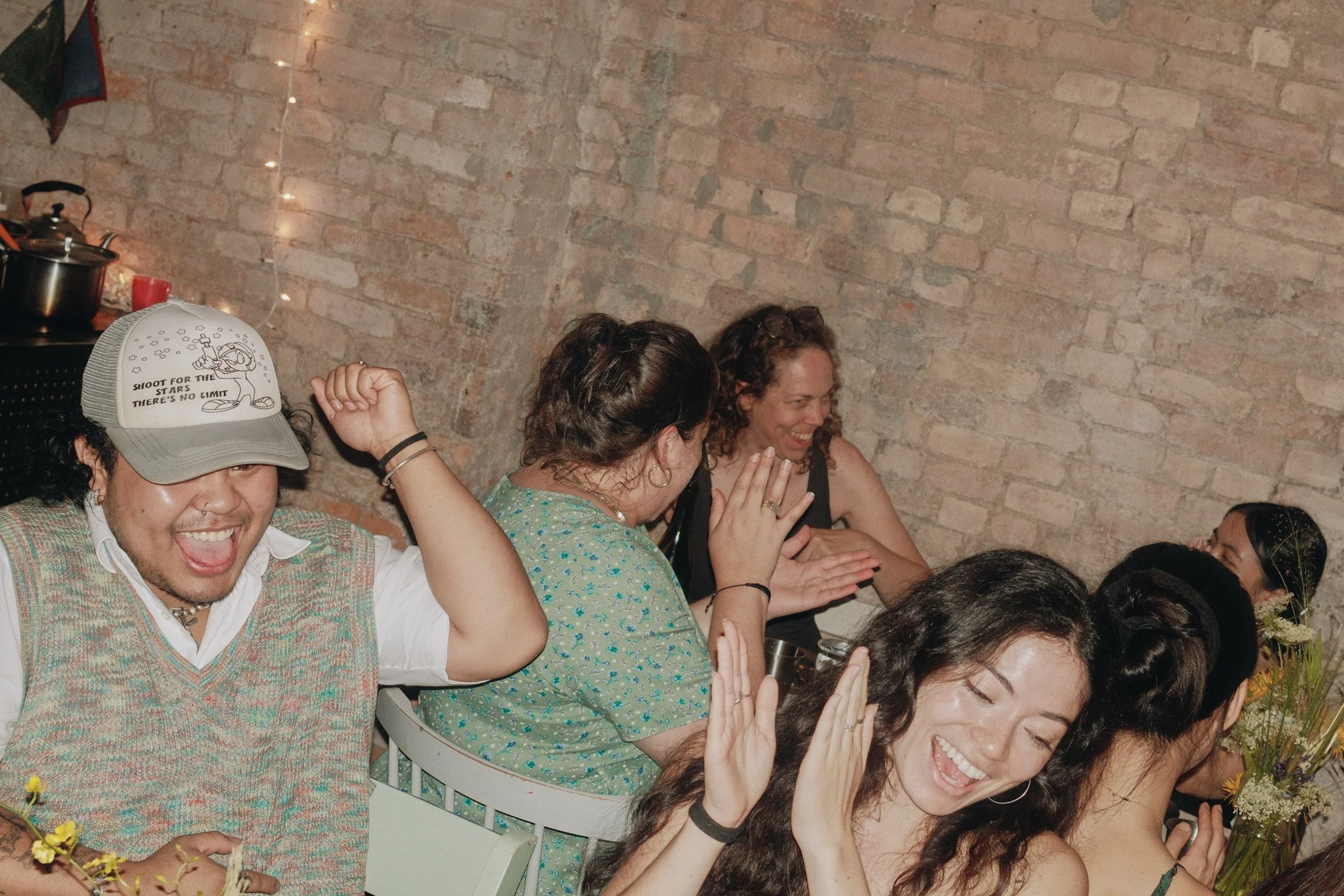

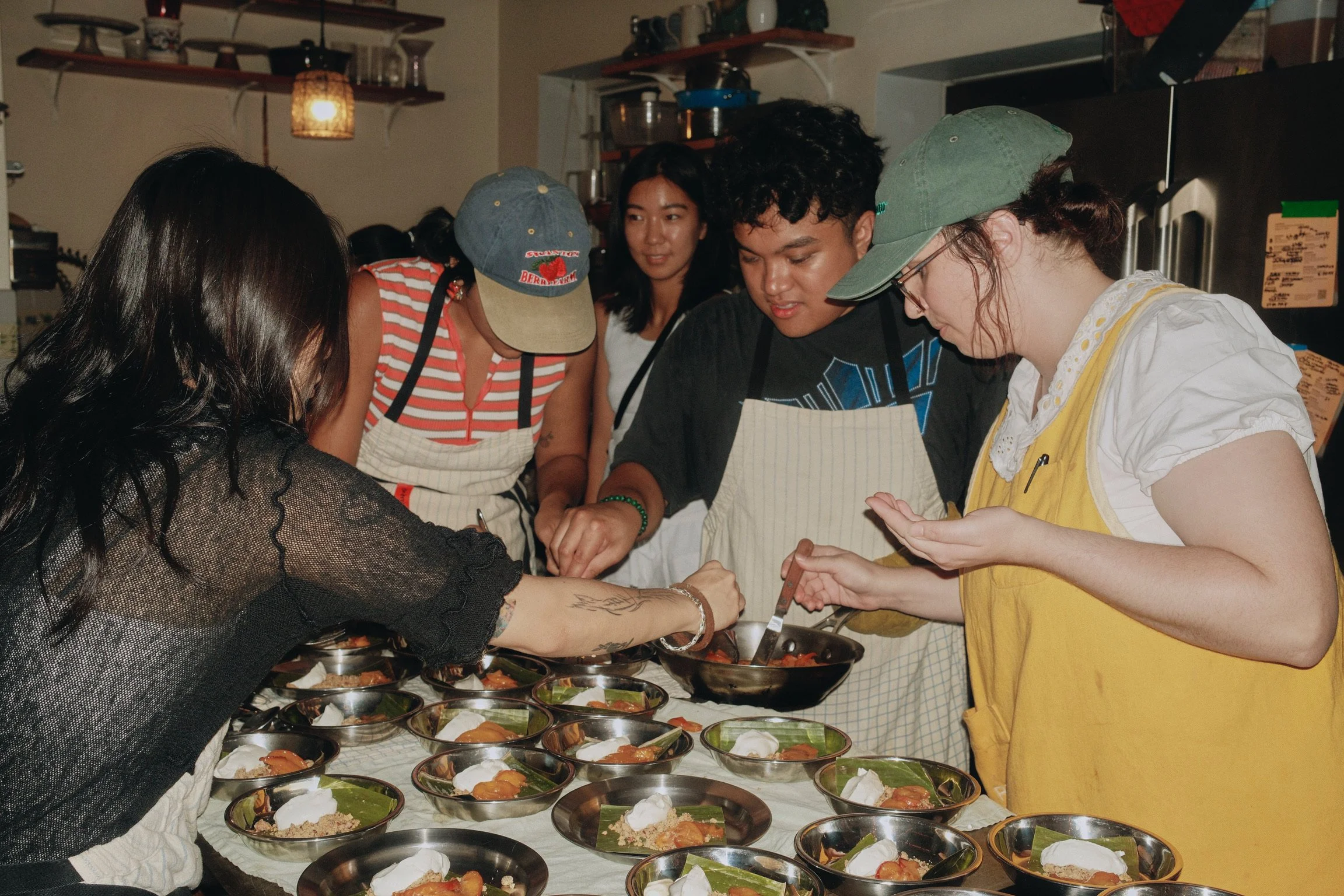

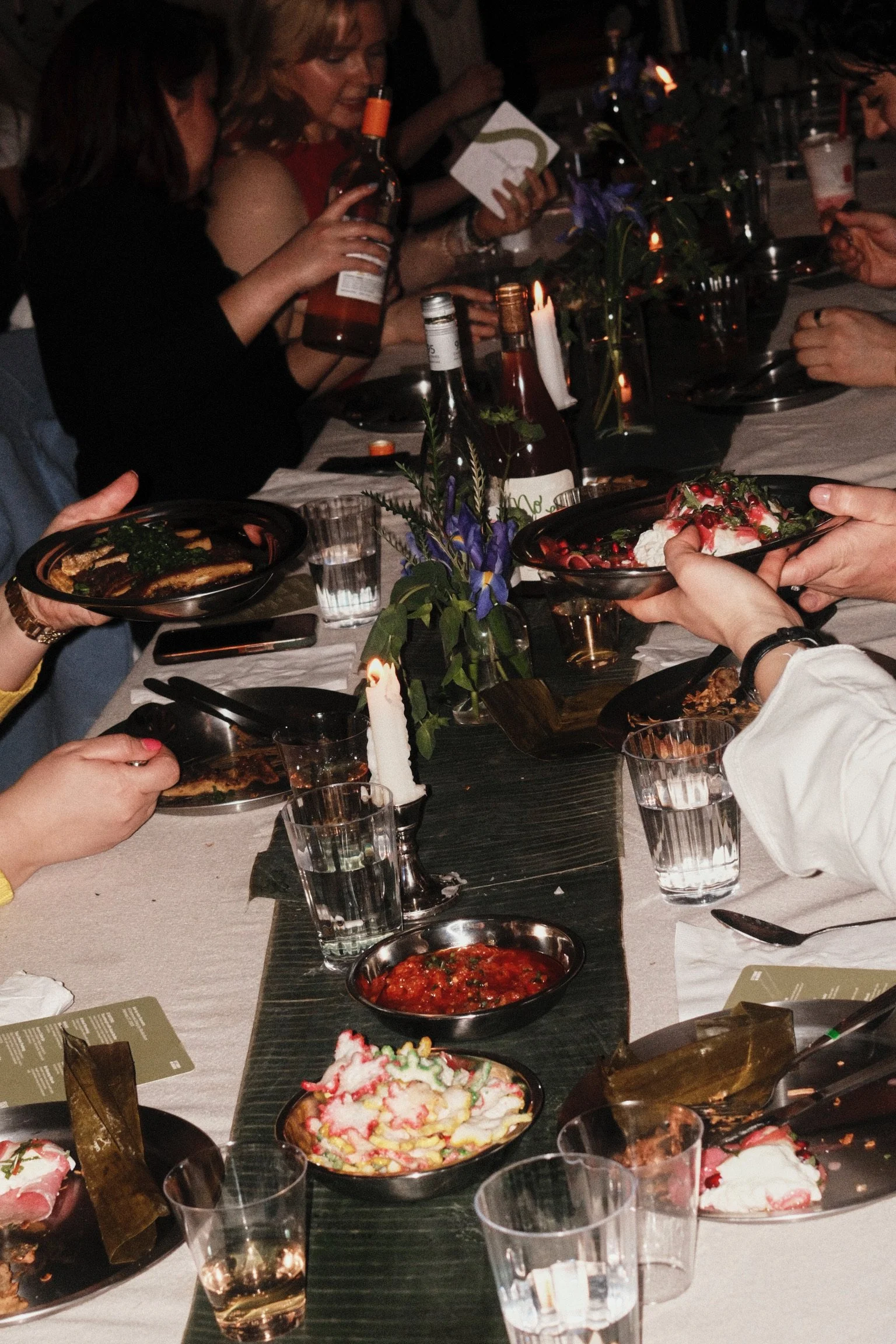

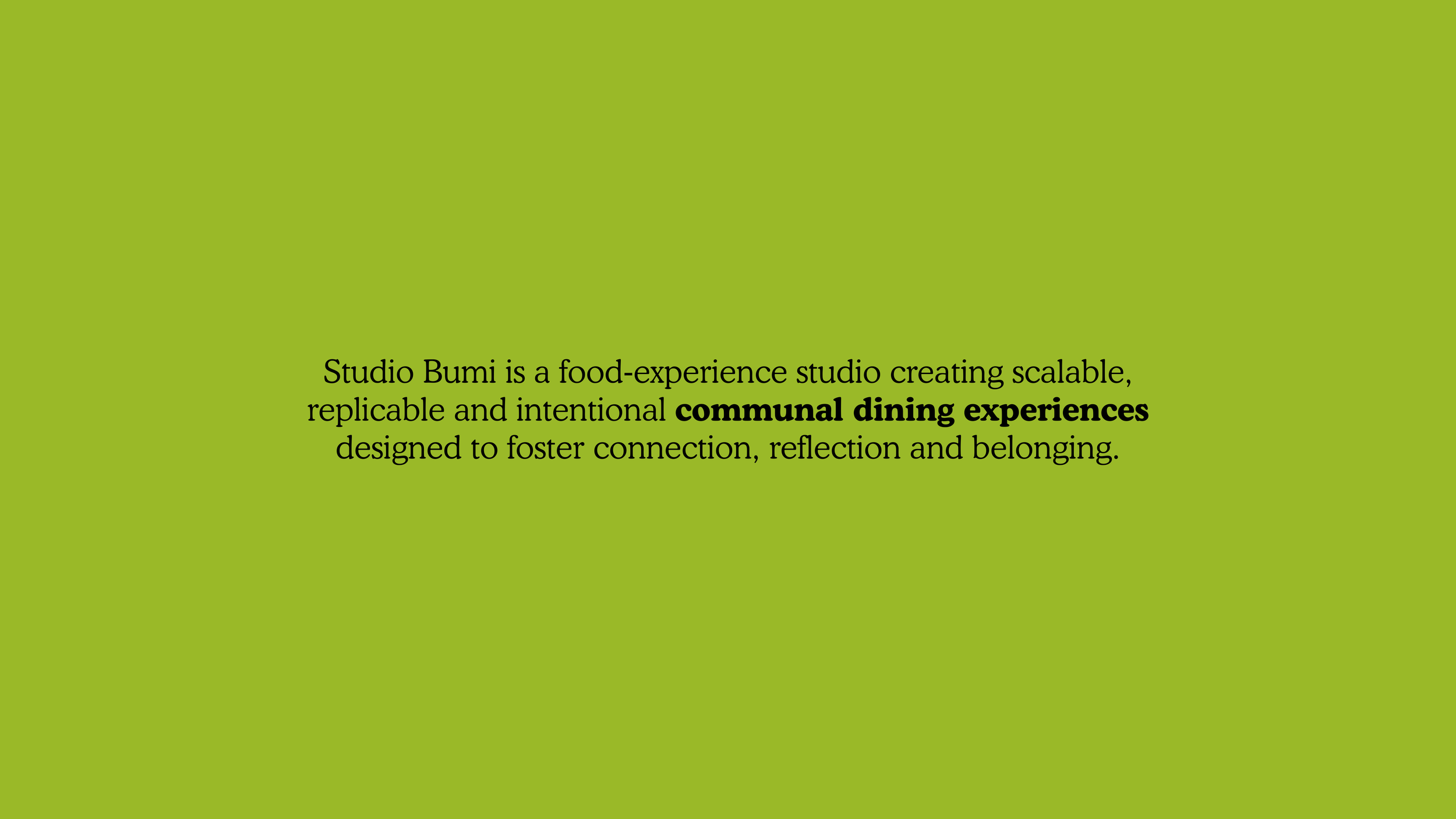

Our vision is ultimately infrastructural: make communal eating cool (and normal) again. Two generations ago, family dinners or neighborhood potlucks were common; today’s young adults instead eat alone or in front of a screen. We want to reverse that trend by building the infrastructure to support convivial gatherings. This means physical infrastructure (access to kitchens and venues in cities), human infrastructure (hosts, facilitators, volunteers), and digital infrastructure (a platform to coordinate events and participants). We often describe it as making “belonging” scalable. If loneliness is partly a design problem (people’s lives and cities are not designed for connection), then Studio Bumi’s solution is to intentionally design for belonging, using food as the medium, design thinking in execution, and community as the outcome.
We design consistent, guided and meaningful food experiences with our friends to transform urban loneliness into belonging.
When asked about “our solution”, these four pillars came to mind: repeatable meal rituals, an empowered community hosting system, a focus on emotional design, and a deliberately low-tech, high-touch approach.

